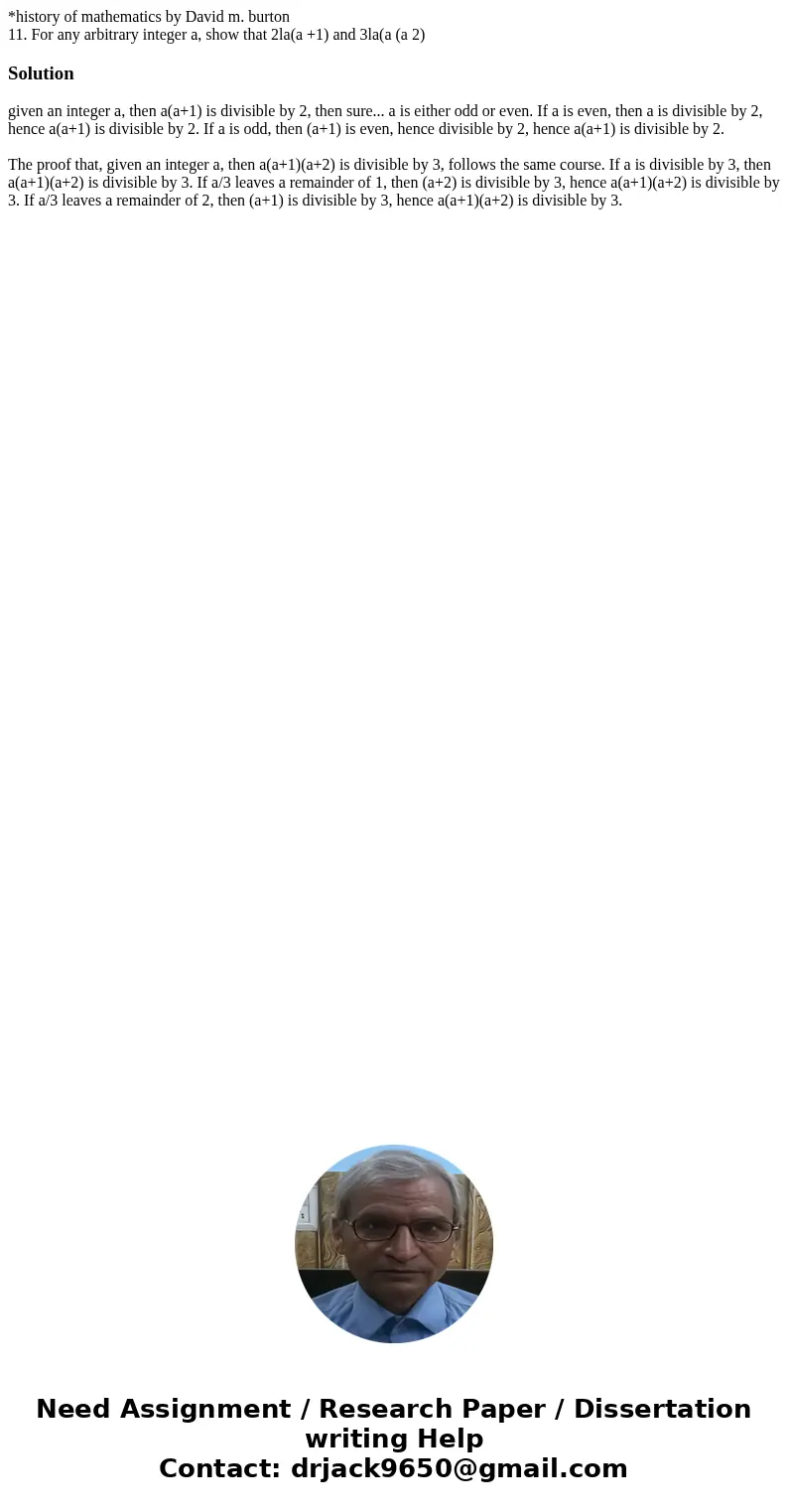history of mathematics by David m burton 11 For any arbitrar
*history of mathematics by David m. burton
11. For any arbitrary integer a, show that 2la(a +1) and 3la(a (a 2) Solution
given an integer a, then a(a+1) is divisible by 2, then sure... a is either odd or even. If a is even, then a is divisible by 2, hence a(a+1) is divisible by 2. If a is odd, then (a+1) is even, hence divisible by 2, hence a(a+1) is divisible by 2.
The proof that, given an integer a, then a(a+1)(a+2) is divisible by 3, follows the same course. If a is divisible by 3, then a(a+1)(a+2) is divisible by 3. If a/3 leaves a remainder of 1, then (a+2) is divisible by 3, hence a(a+1)(a+2) is divisible by 3. If a/3 leaves a remainder of 2, then (a+1) is divisible by 3, hence a(a+1)(a+2) is divisible by 3.

 Homework Sourse
Homework Sourse